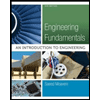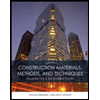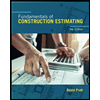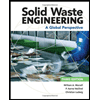![WebAssign Homework Only for Moaveni's Engineering Fundamentals: An Introduction to Engineering, SI Edition, 6th Edition, [Instant Access]](https://www.bartleby.com/isbn_cover_images/9780357126677/9780357126677_largeCoverImage.gif)
WebAssign Homework Only for Moaveni's Engineering Fundamentals: An Introduction to Engineering, SI Edition, 6th Edition, [Instant Access]
6th Edition
ISBN: 9780357126677
Author: MOAVENI
Publisher: Cengage Learning US
expand_more
expand_more
format_list_bulleted
Concept explainers
Question
Chapter 8, Problem 20P
To determine
Find the rotational speed of a car wheels when the car is travelling at 60 mph.
Expert Solution & Answer
Want to see the full answer?
Check out a sample textbook solution
Students have asked these similar questions
5-18 Determine the maximum service live load that the column shown in Figure P5-18 can
support if the live load is twice the dead load. (Lc)x = KxLx = 24 ft, (Lc)y = KyLy = 16 ft
= 36 ksi. Solve by LRFD and ASD methods.
and Fy
Figure P5-18
C6×13
C6×13
PLX14X4
Please answer the question in the picture, show all of you work in pictures and handwritten.
2nd monthly
4th. Year-
exam
Hydraulic Structures 9/12/201
QL
Check the floor thickness
the cutoff depths and the horizontal
floor length for the given regulator using Lane's method.
u/s. W.L.
u/s. B.L
24.25
=
20.50
m
x
Discharge Q = 60 m³/s
Waterway S =
Duis
3.5 m
10
m
Distance from u/s pile line
Cd = 0.9
C = 6.5
Concrete floor thickness.
D/S.W.L..
D/S. B.L.
24.00
th
=
19.65
m
u/s. canal bed width = 15 m
Horizontal floor length L₁ = 51 m
D
6m
to the gate
silt factor f
under the gate
9.0m
=
0.7
beginning' · of floor.
at
at
end
2.4 ton / m³
3m
1
=
m
I m
Fronc
Q.2.
What is the function of
0
u/s cutoff
4 Fish ladder
③ D/S cutoff
Lock
The flow net
Intermediate oile
Al-Mansour University College
U/S guid
bank
Chapter 8 Solutions
WebAssign Homework Only for Moaveni's Engineering Fundamentals: An Introduction to Engineering, SI Edition, 6th Edition, [Instant Access]
Ch. 8.2 - Prob. 1BYGCh. 8.2 - Prob. 2BYGCh. 8.2 - Prob. 3BYGCh. 8.2 - Prob. 4BYGCh. 8.2 - Prob. BYGVCh. 8.4 - Prob. 1BYGCh. 8.4 - Prob. 2BYGCh. 8.4 - Prob. 3BYGCh. 8.4 - Prob. BYGVCh. 8.5 - Prob. 1BYG
Ch. 8.5 - Prob. 2BYGCh. 8.5 - Prob. 3BYGCh. 8.5 - Prob. 4BYGCh. 8.5 - Prob. BYGVCh. 8 - Prob. 1PCh. 8 - Prob. 3PCh. 8 - Prob. 4PCh. 8 - Prob. 9PCh. 8 - Prob. 10PCh. 8 - Prob. 11PCh. 8 - Prob. 12PCh. 8 - Prob. 13PCh. 8 - Prob. 14PCh. 8 - Prob. 15PCh. 8 - Prob. 17PCh. 8 - Prob. 18PCh. 8 - Prob. 19PCh. 8 - Prob. 20PCh. 8 - Prob. 21PCh. 8 - Prob. 22PCh. 8 - Prob. 23PCh. 8 - Prob. 24PCh. 8 - Prob. 25PCh. 8 - Prob. 26PCh. 8 - Prob. 27PCh. 8 - Prob. 28PCh. 8 - Prob. 29PCh. 8 - Prob. 30PCh. 8 - Prob. 31PCh. 8 - Prob. 32PCh. 8 - Prob. 33PCh. 8 - Prob. 34PCh. 8 - Prob. 35PCh. 8 - Prob. 36PCh. 8 - Prob. 37PCh. 8 - Prob. 38PCh. 8 - Prob. 39PCh. 8 - Prob. 40PCh. 8 - Prob. 41PCh. 8 - Prob. 42PCh. 8 - Prob. 43PCh. 8 - Prob. 44PCh. 8 - Prob. 45PCh. 8 - Prob. 46PCh. 8 - Prob. 47PCh. 8 - Prob. 48PCh. 8 - Prob. 49PCh. 8 - Prob. 50PCh. 8 - Prob. 51PCh. 8 - Prob. 52PCh. 8 - Prob. 53PCh. 8 - Prob. 54PCh. 8 - Prob. 55PCh. 8 - Prob. 56PCh. 8 - Prob. 57PCh. 8 - Prob. 58PCh. 8 - Prob. 59P
Knowledge Booster
Learn more about
Need a deep-dive on the concept behind this application? Look no further. Learn more about this topic, civil-engineering and related others by exploring similar questions and additional content below.Similar questions
- I dont understand how to do the hand calculations help pls A multi-cell box beam, 1800 mm long, is subject to a vertical shear load of 6 kN applied in a vertical plane. Points 1-8 mark the boom elements on the beam. Calculate the shear flow in each web and locate the shear centre using hand calculations. The results, including mesh convergence, shear flow, stress distribution, deformation, and shear centre location, will then be compared with findings from Abaqus FEA. The material properties are: Young's modulus (E) is 72 GPa, and Poisson's ratio (ν) is 0.3.arrow_forwardfind the following (show all work) Seepage velocity vs (m/sec) Discharge velocity v (m/sec) Hydraulic Conductivity k (m/sec) given : length of specimen 0.25 m , Diameter of specimen 0.10 m , Head difference 0.50 m , water collected in 2 minutes, 50 ml, the void ratio of soil 0.46arrow_forwarddraw sketches to comment the different components of the total head (Bernoulli's equation) Define head loss Explain the differences between a seepage and a discharge velocities in soil. Are they related if so in what way.arrow_forward
- Q1: Determine the duration of project for the activities shown below, and find the critical path by using (A-0- Diagram) ABC DEFOHIJKMN R 4 5 6 8 3 7 8 11 3 8 3 7 8 11 3 8 489 4 Activity Duration (Weeks) Followed C,D D,F JJHOK MIK NMR- by E 1arrow_forwardI dont understand how to do the hand calculations help pls A multi-cell box beam, 1800 mm long, is subject to a vertical shear load of 6 kN applied in a vertical plane. Points 1-8 mark the boom elements on the beam. Calculate the shear flow in each web and locate the shear centre using hand calculations. The results, including mesh convergence, shear flow, stress distribution, deformation, and shear centre location, will then be compared with findings from Abaqus FEA. The material properties are: Young's modulus (E) is 72 GPa, and Poisson's ratio (ν) is 0.3.arrow_forward2. Vertical highway curve: Given PVI at 65 + 00, L = 800 ft, g1 = +4%, g2 = -3%, and PVI elevation = 264.2 ft, compute the elevations of the curve high point and for all of the full stations until reaching the end of the curve as well as for the beginning and end of the curve.arrow_forward
- 1. Horizontal highway curve: Given Pl at 65 + 78.20, A = 22°00', and D = 6°00', compute the deflections to the nearest second for the full stations (means stations 65+00, 66+00, etc.) as well as for the beginning and end of the curve.arrow_forwardWater flows uniformly in a channel with a bottom slope of 0.002 and a compound cross-section: Section 1 has concrete sides and bottom. Section 2 is vegetated with light brush. Manning coefficients and dimensions (in meters) are shown below: Calculate: a. The composite Manning roughness coefficient for the channel b. The flow rate in cubic meters per second (cms) for the water levels shownarrow_forwardQ2: For the activities shown in the table below, it is required to reduce the total duration of the project four days by using crash program and network diagram, If you knew that indirect costs is 150 S/day and the delay fine is 100 S/day after the 14th day. Find new cost after crashing the project four days? Activity Preceding Normal Program Crash Program activity Duration (days) Direct Cost (S) Duration (days) Direct Cost (S) A 5 600 3 950 B 4 200 3 500 C A 5 300 4 500 D A 2 600 1 615 E B 6 900 5 1025 800 F C 4 700 3 450 400 G D 4 700 700 3 1400 H E 600 I F,G,H 5000 Σ (40 p (good luck)arrow_forward
arrow_back_ios
SEE MORE QUESTIONS
arrow_forward_ios
Recommended textbooks for you
 Engineering Fundamentals: An Introduction to Engi...Civil EngineeringISBN:9781305084766Author:Saeed MoaveniPublisher:Cengage Learning
Engineering Fundamentals: An Introduction to Engi...Civil EngineeringISBN:9781305084766Author:Saeed MoaveniPublisher:Cengage Learning Construction Materials, Methods and Techniques (M...Civil EngineeringISBN:9781305086272Author:William P. Spence, Eva KultermannPublisher:Cengage Learning
Construction Materials, Methods and Techniques (M...Civil EngineeringISBN:9781305086272Author:William P. Spence, Eva KultermannPublisher:Cengage Learning Fundamentals Of Construction EstimatingCivil EngineeringISBN:9781337399395Author:Pratt, David J.Publisher:Cengage,
Fundamentals Of Construction EstimatingCivil EngineeringISBN:9781337399395Author:Pratt, David J.Publisher:Cengage, Traffic and Highway EngineeringCivil EngineeringISBN:9781305156241Author:Garber, Nicholas J.Publisher:Cengage Learning
Traffic and Highway EngineeringCivil EngineeringISBN:9781305156241Author:Garber, Nicholas J.Publisher:Cengage Learning
 Solid Waste EngineeringCivil EngineeringISBN:9781305635203Author:Worrell, William A.Publisher:Cengage Learning,
Solid Waste EngineeringCivil EngineeringISBN:9781305635203Author:Worrell, William A.Publisher:Cengage Learning,

Engineering Fundamentals: An Introduction to Engi...
Civil Engineering
ISBN:9781305084766
Author:Saeed Moaveni
Publisher:Cengage Learning

Construction Materials, Methods and Techniques (M...
Civil Engineering
ISBN:9781305086272
Author:William P. Spence, Eva Kultermann
Publisher:Cengage Learning

Fundamentals Of Construction Estimating
Civil Engineering
ISBN:9781337399395
Author:Pratt, David J.
Publisher:Cengage,

Traffic and Highway Engineering
Civil Engineering
ISBN:9781305156241
Author:Garber, Nicholas J.
Publisher:Cengage Learning


Solid Waste Engineering
Civil Engineering
ISBN:9781305635203
Author:Worrell, William A.
Publisher:Cengage Learning,